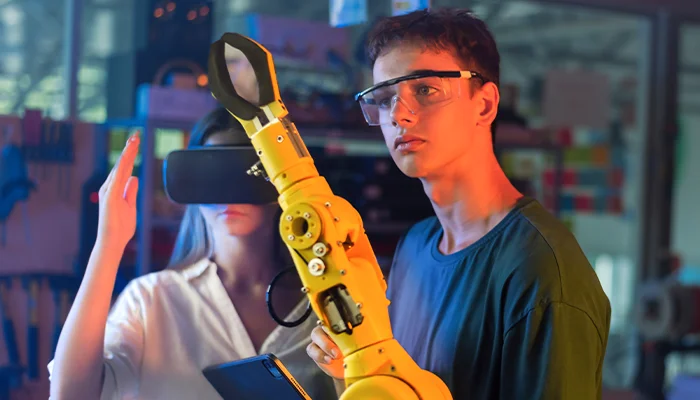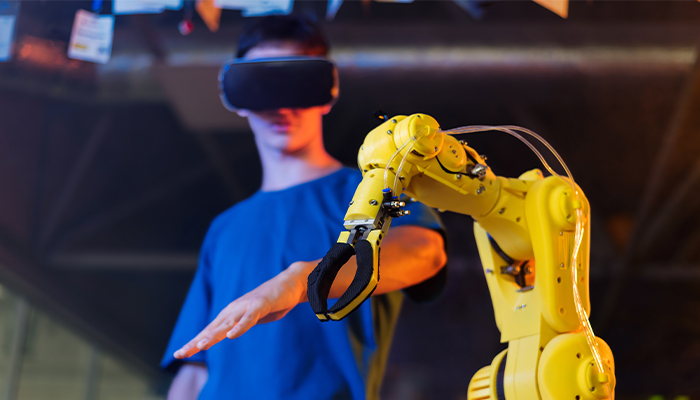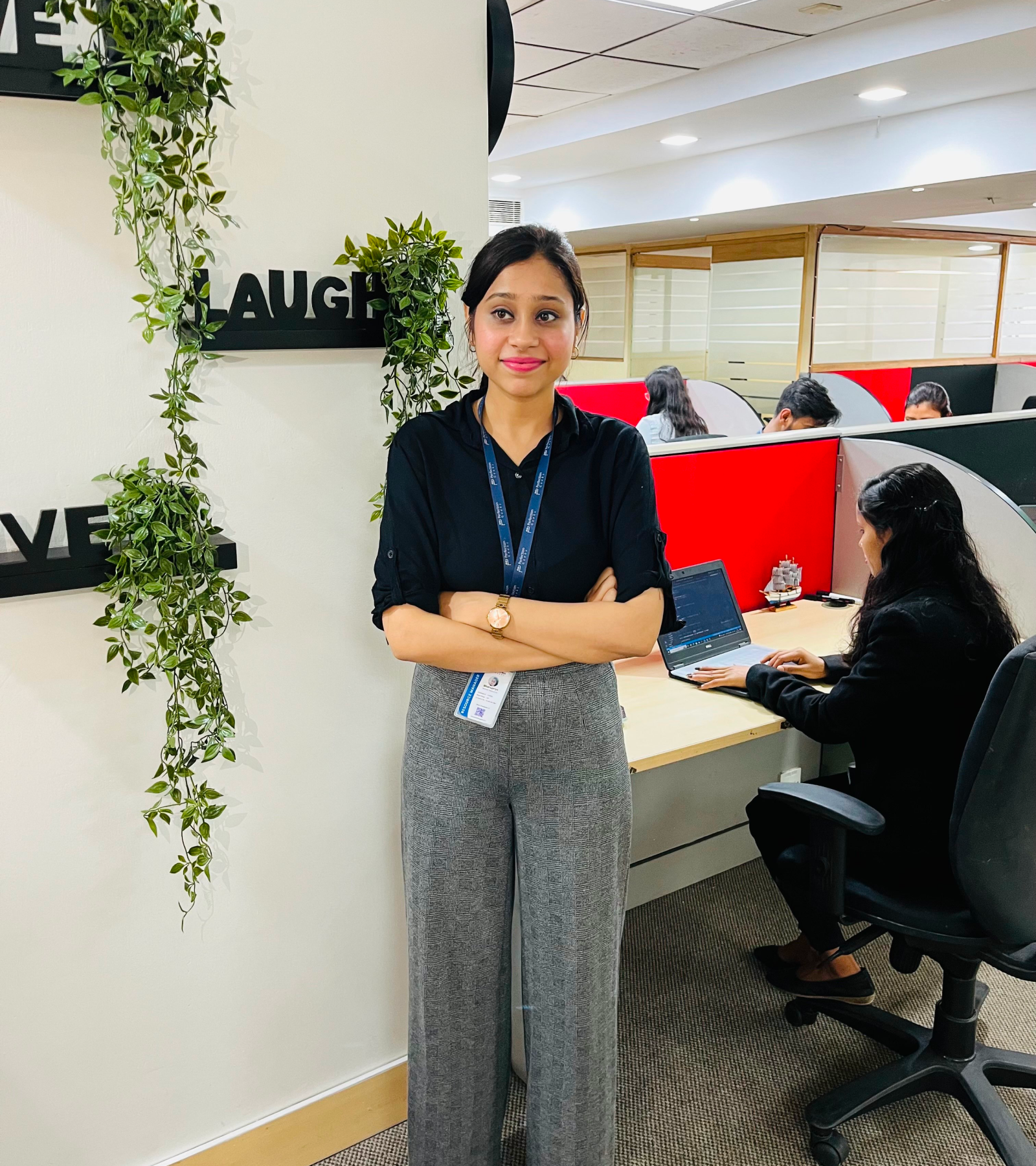The Impact of NLP in the Automotive Industry in 2024

JUN, 28, 2024 16:00 PM
The Impact of NLP in the Automotive Industry in 2024
Natural Language Processing (NLP) is a subfield of artificial intelligence (AI) focused on the interaction between computers and humans through natural language. In recent years, NLP has gained significant traction in various industries, including healthcare, finance, and customer service. The automotive industry, in particular, is poised to undergo transformative changes with the integration of NLP technologies. As we look ahead to 2024, the impact of NLP on the automotive sector is set to revolutionize the way we interact with vehicles, enhance safety, and improve overall driving experiences.
Understanding NLP and its Relevance to the Automotive Industry
NLP involves the use of algorithms and machine learning models to understand, interpret, and generate human language. This technology can analyze text, voice commands, and other forms of language data to provide meaningful responses and actions. In the automotive context, NLP enables vehicles to understand and respond to voice commands, provide real-time information, and facilitate seamless communication between drivers and their cars.
Key Applications of NLP in the Automotive Industry
1. Voice-Activated Assistants
One of the most prominent applications of NLP in the automotive industry is the development of voice-activated assistants. These AI-powered systems, such as Apple's Siri, Amazon's Alexa, and Google's Assistant, are being integrated into vehicles to provide hands-free control over various functions. By 2024, we can expect to see more advanced voice-activated assistants that offer:
- Enhanced Navigation: Drivers can use voice commands to get real-time traffic updates, directions, and points of interest. NLP enables the system to understand context and provide the most relevant information.
- In-Car Entertainment: Voice assistants can control music, podcasts, audiobooks, and other entertainment options, allowing drivers to keep their focus on the road.
- Climate Control: Adjusting the vehicle's temperature, fan speed, and other climate settings through simple voice commands.
- Vehicle Diagnostics: Drivers can inquire about the status of their vehicle, including fuel levels, tire pressure, and upcoming maintenance needs.
2. Improved Human-Machine Interfaces (HMIs)
NLP is enhancing human-machine interfaces in vehicles, making them more intuitive and user-friendly. Traditional buttons and touchscreens are being complemented or replaced by voice and gesture controls, allowing drivers to interact with their vehicles more naturally. By 2024, we anticipate the following advancements:
- Multimodal Interaction: Combining voice commands with gestures and eye-tracking to create a more comprehensive and intuitive interface.
- Contextual Understanding: Vehicles will be able to understand the context of commands, reducing the need for repetitive or overly specific instructions.
- Personalization: NLP can tailor responses and actions based on the driver's preferences and habits, creating a more personalized driving experience.
3. Enhanced Safety Features
Safety is a critical concern in the automotive industry, and NLP plays a vital role in enhancing vehicle safety. By 2024, we can expect NLP-driven innovations that contribute to safer driving environments:
- Real-Time Driver Monitoring: NLP can analyze voice patterns and other cues to detect driver fatigue, distraction, or stress, prompting timely alerts or interventions.
- Accident Prevention: Voice-activated emergency response systems can quickly summon help in the event of an accident, providing essential information to first responders.
- Advanced Driver Assistance Systems (ADAS): NLP can enhance ADAS by interpreting spoken commands and providing real-time feedback, such as lane departure warnings, collision alerts, and adaptive cruise control adjustments.
4. Predictive Maintenance and Diagnostics
NLP can significantly improve predictive maintenance and diagnostics, reducing downtime and maintenance costs for vehicle owners. By 2024, vehicles equipped with NLP technologies will be capable of:
- Self-Diagnosis: using voice commands to report and diagnose potential issues, such as unusual sounds, vibrations, or performance anomalies.
- Maintenance Scheduling: Automatically scheduling maintenance appointments based on voice interactions and diagnostic data ensures timely servicing.
- Remote Assistance: providing remote diagnostics and troubleshooting through voice interactions, enabling technicians to guide vehicle owners in addressing minor issues.
5. Seamless Connectivity and IoT Integration
The rise of the Internet of Things (IoT) is driving greater connectivity in the automotive industry. NLP enhances this connectivity by enabling seamless communication between vehicles, smart devices, and infrastructure. By 2024, we can expect:
- Smart Home Integration: Vehicles will interact with smart home devices, allowing drivers to control home appliances, security systems, and more through voice commands while on the road.
- Connected Ecosystems: NLP will facilitate communication between vehicles and various connected services, such as fuel stations, parking facilities, and charging stations, providing real-time updates and seamless transactions.
- Vehicle-to-Everything (V2X) Communication: Enhancing vehicle-to-vehicle (V2V) and vehicle-to-infrastructure (V2I) communication through natural language interactions, improving traffic management and safety.
Challenges and Considerations
While the potential of NLP in the automotive industry is immense, there are several challenges and considerations that must be addressed to ensure successful implementation:
1. Data Privacy and Security
The integration of NLP in vehicles involves the collection and processing of large amounts of data, including voice recordings and personal information. Ensuring data privacy and security is paramount to gaining user trust and complying with regulatory requirements. Automakers must implement robust encryption and data protection measures to safeguard sensitive information.
2. Accuracy and Reliability
NLP systems must be highly accurate and reliable to provide a seamless user experience. Misinterpretation of voice commands or incorrect responses can lead to frustration and potential safety risks. Continuous improvements in NLP algorithms and machine learning models are necessary to enhance accuracy and reliability.
3. Multilingual and Multidialect Support
The automotive market is global, with drivers speaking various languages and dialects. NLP systems must support multiple languages and dialects to cater to diverse user bases. Developing comprehensive language models and ensuring accurate language processing for different regions is a complex but essential task.
4. Integration with Legacy Systems
Integrating NLP technologies with existing vehicle systems and infrastructure can be challenging. Automakers must ensure compatibility and seamless integration with legacy systems to maximize the benefits of NLP. This may require significant investment in upgrading or replacing outdated components.
The Future of NLP in the Automotive Industry
As we move towards 2024, the impact of NLP in the automotive industry will continue to grow, driven by advancements in AI, machine learning, and connectivity. Here are some potential future developments:
1. Autonomous Vehicles
NLP will play a crucial role in the development and operation of autonomous vehicles. By enabling natural language interactions between passengers and the vehicle, NLP will enhance the user experience and ensure safe and efficient operation. Autonomous vehicles will rely on NLP to understand and respond to passenger commands, provide real-time updates, and handle complex traffic scenarios.
2. In-Vehicle Virtual Assistants
The evolution of in-vehicle virtual assistants will see them become more intelligent and capable. These assistants will not only handle basic tasks but also provide proactive recommendations, anticipate user needs, and offer personalized services. By 2024, virtual assistants will become indispensable companions for drivers and passengers alike.
3. Smart Fleet Management
NLP will revolutionize fleet management by providing real-time insights and analytics through natural language interactions. Fleet managers will be able to monitor vehicle performance, track maintenance schedules, and optimize routes using voice commands. NLP-driven analytics will enhance decision-making and improve overall fleet efficiency.
4. Enhanced Customer Experience
Automakers will leverage NLP to enhance customer experiences beyond the vehicle. From virtual showrooms to personalized marketing, NLP will enable seamless and interactive customer interactions. Car dealerships and service centers will use NLP to provide instant support, answer queries, and offer tailored recommendations.
Conclusion

The impact of NLP in the automotive industry in 2024 is set to be transformative, driving advancements in voice-activated assistants, human-machine interfaces, safety features, predictive maintenance, and connectivity. While challenges such as data privacy, accuracy, and integration remain, the potential benefits far outweigh the hurdles.
Automakers and technology providers must continue to invest in NLP research and development to unlock the full potential of this technology. By doing so, they can create smarter, safer, and more connected vehicles that enhance the driving experience and meet the evolving needs of consumers.
As we look to the future, the integration of NLP in the automotive industry promises to
usher in a new era of innovation and convenience, making our journeys more enjoyable and
efficient than ever before. The road ahead is paved with exciting possibilities, and the
impact of NLP will undoubtedly be a driving force in shaping the future of
mobility.
FAQs
FAQ 1: What is Natural Language Processing (NLP)?
Answer:Natural Language Processing (NLP) is a field of artificial intelligence that focuses on the interaction between computers and humans using natural language. It involves the use of algorithms and machine learning models to understand, interpret, and generate human language, enabling computers to process and respond to text and voice inputs in a meaningful way.
FAQ 2: How is NLP used in the automotive industry?
Answer:NLP is used in the automotive industry to enable voice-activated assistants, enhance human-machine interfaces, improve safety features, facilitate predictive maintenance, and enable seamless connectivity with IoT devices. By integrating NLP technologies, vehicles can understand and respond to voice commands, provide real-time information, and enhance the overall driving experience.
FAQ 3: What are the benefits of voice-activated assistants in vehicles?
Answer: Voice-activated assistants in vehicles offer several benefits, including hands-free control over navigation, entertainment, climate settings, and vehicle diagnostics. They enhance safety by allowing drivers to keep their focus on the road while interacting with their vehicles. Additionally, voice assistants provide personalized experiences by understanding driver preferences and habits.
FAQ 4: What are the challenges of implementing NLP in vehicles?
Answer: The challenges of implementing NLP in vehicles include ensuring data privacy and security, achieving high accuracy and reliability, supporting multiple languages and dialects, and integrating with existing vehicle systems. Addressing these challenges requires continuous improvements in NLP algorithms, robust data protection measures, and significant investment in technology upgrades.
Strategy
Design
Blockchain Solution
Development
Contact US!
USA 
1968 S. Coast Hwy, Laguna Beach, CA 92651, United States
Copyright © 2025 PerfectionGeeks Technologies | All Rights Reserved | Policy







